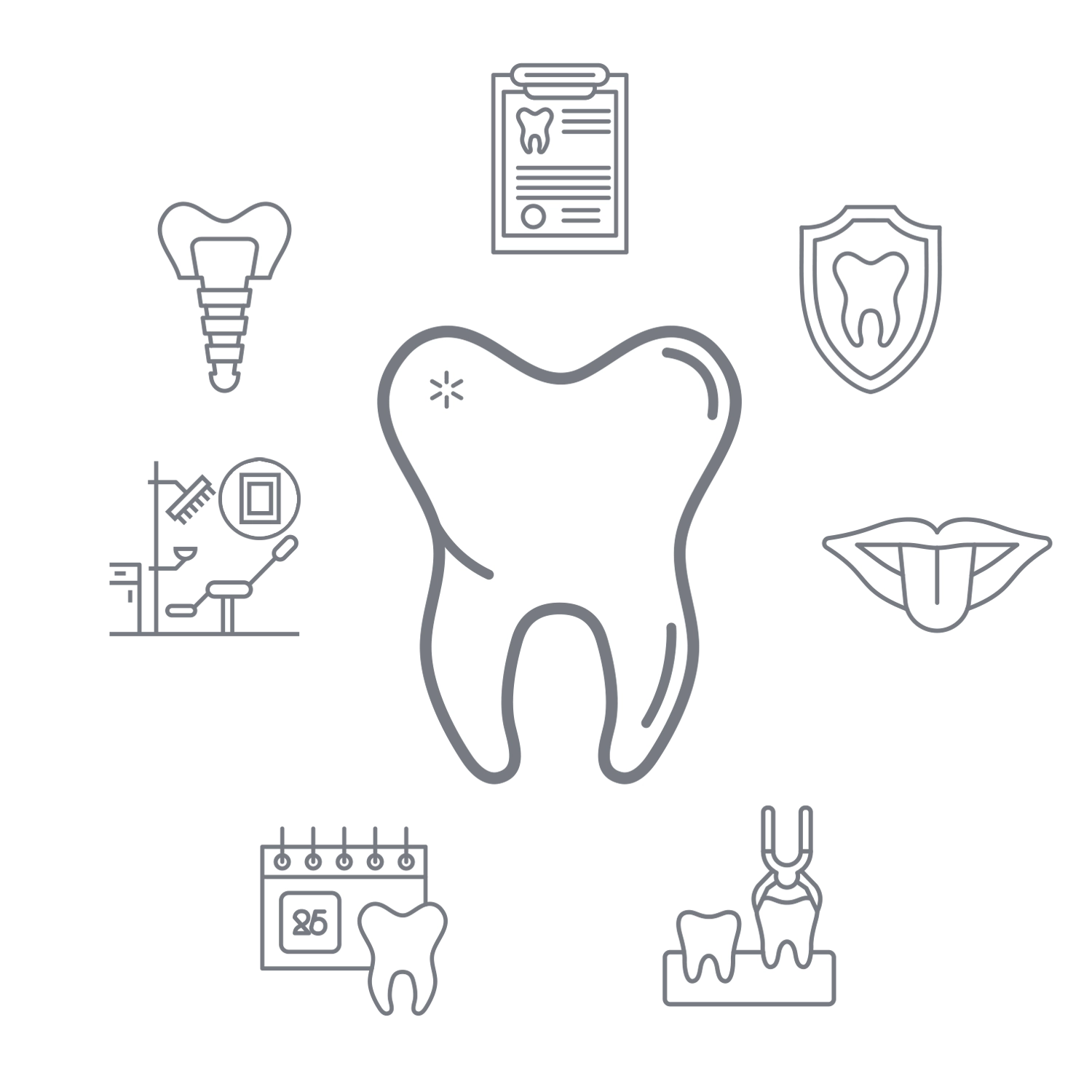Begin Your Journey To A Better Smile
Impacted Wisdom Teeth
When wisdom teeth don’t have enough room to emerge, they can become impacted and painful. Oral surgeons remove them to prevent infection and overcrowding.
Oral Infections
Infections in the mouth or jaw that don’t heal with medication may need surgical attention. Oral surgeons can remove infected areas to stop the spread and relieve discomfort.
Jaw Alignment Issues
A misaligned jaw can interfere with speaking, chewing, and everyday comfort. Surgical correction helps reposition the jaw for better function and balance.
Facial Injuries
Trauma to the face, such as broken jaws or knocked-out teeth, requires expert repair. Oral surgeons treat facial injuries to restore both appearance and function.
Jaw Cysts and Growths
Abnormal growths or cysts in the jaw are often painless but can damage bone over time. Surgical removal ensures the area stays healthy and prevents future issues.
Tooth Loss
Missing teeth affect bite strength and confidence. Oral surgeons often place dental implants that function and look like natural teeth.

Central Washington Oral & Facial Surgery
At our offices in Ellensburg WA, Moses Lake WA, and Wenatchee WA we offer the full scope of oral and maxillofacial services, including wisdom teeth removal and dental implant placement, to help patients achieve all their treatment goals. From the moment you walk through our doors of one of our locations, our team is focused on creating a seamless, supportive experience that prioritizes your comfort and peace of mind. We believe in open communication, individualized treatment plans, and delivering care with the utmost professionalism. Our oral surgeons at Ellensburg WA, Moses Lake WA, and Wenatchee WA are highly trained experts in the field of oral surgery, continually advancing their knowledge to ensure the best possible outcomes. No matter your age or reason for visiting, we’re here to guide you every step of the way.
Learn more about our oral surgery practice


Request an Appointment
Oral Surgery
For more than a decade, Central Washington Oral & Facial Surgery has performed the full scope of oral and maxillofacial surgery with the highest quality of care. We are dedicated to providing top results and uncompromising care for our patients, and our oral surgeons practice the most advanced techniques to ensure every procedure is as efficient and safe as possible.
When Do You Need To See An Oral Surgeon?
Knowing when to see an oral surgeon can make a big difference in your overall oral health. If you're experiencing persistent pain in your teeth, jaw, or face, it could be a sign of an underlying issue that needs expert care. Common symptoms include swelling, difficulty chewing, jaw stiffness, or wisdom teeth beginning to push through. These issues often don't improve on their own and can lead to more serious complications if left untreated. Scheduling a consultation allows us to evaluate your concerns and recommend the most effective treatment options.
You should also consider making an appointment if you've been referred by your general dentist for specialized care. Oral surgeons are trained to handle more complex procedures like tooth extractions, dental implants, bone grafting, and corrective jaw surgery. If you're missing teeth, struggling with jaw alignment, or facing chronic oral infections, it's time to explore surgical solutions that can restore your health and function. We’re here at our multiple locations to provide clear answers, a custom treatment plan, and the expert care you deserve. Don't wait until the discomfort worsens—early intervention often leads to quicker recovery and better long-term results.
The History Of Oral Surgery
The practice of oral surgery has a rich and fascinating history that stretches back to some of the world’s earliest civilizations. Evidence from ancient cultures, including those in Mesopotamia and India, reveals early attempts at treating dental pain and facial injuries using basic tools and rudimentary techniques. As medical understanding progressed, especially during the Renaissance and Industrial Revolution, oral surgery began to shift from crude interventions to more structured, scientific methods. The introduction of anesthesia, antiseptics, and surgical protocols in the 19th century transformed oral procedures into safer, more predictable outcomes.
Today, oral and maxillofacial surgery is a highly respected specialty that blends advanced dental training with surgical precision. Surgeons in this field manage everything from wisdom tooth extractions to complex jaw realignments and facial reconstructions. Innovations in 3D imaging, digital planning, and minimally invasive techniques have made procedures more comfortable and outcomes more successful than ever before. What was once a reactive practice has become a proactive, high-tech field that plays a critical role in both functional health and facial aesthetics.


What Kind Of Training Does An Oral Surgeon Have
Oral surgeons follow a highly specialized and rigorous path to gain the skills necessary for complex surgical care of the face, jaw, and mouth. Their journey begins with a bachelor’s degree, followed by dental school where they earn either a DDS or DMD. After dental school, they complete a hospital-based residency program that lasts four to six years, providing in-depth training in surgical techniques, anesthesia, emergency medicine, and oral pathology.
In addition to their core training, many oral and maxillofacial surgeons seek board certification and may further specialize in areas such as dental implants, facial reconstruction, or pediatric oral surgery. This advanced education allows them to manage a wide range of procedures with both precision and safety. With expertise in both dental and medical fields, oral surgeons are equipped to handle everything from routine extractions to complex reconstructive surgeries with confidence and care.

Brian Christensen, DDS, MD, and Brenen Olsen DDS

Begin Your Journey to A Brighter Smile in 3 Easy Steps



